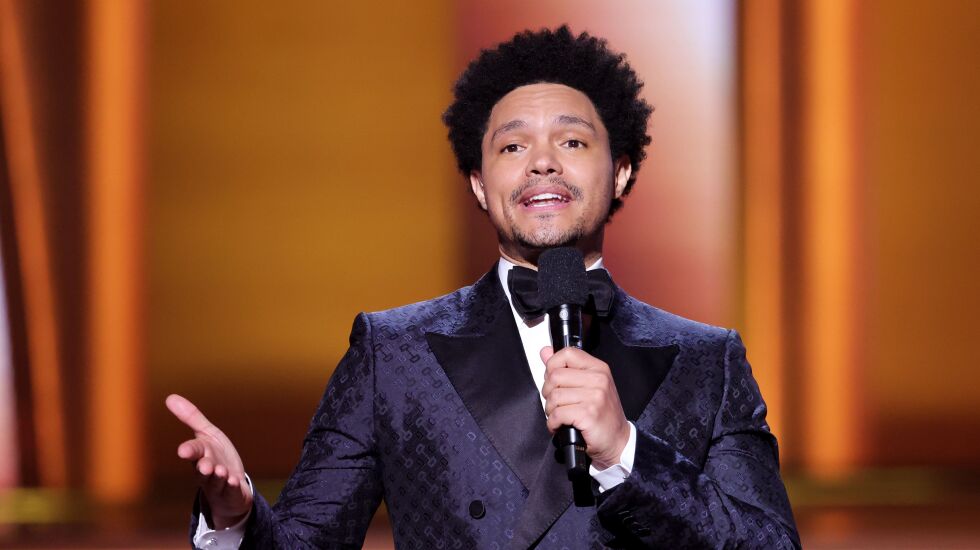
Keeping up with popular culture is exhausting and impossible. Why bother even trying? The new hit movie or song, the latest viral TikTok. There’s so much of it; most can be easily missed.
But when somebody I know recommends something, I pay attention. What’s the point of talking otherwise? When a young man in his 20s — a Chicago teacher — urged me to read Trevor Noah’s book, “Born a Crime,” I immediately sought it out on Audible.
The fact that it had been a No. 1 bestseller when it came out in 2016 was news to me. I knew exactly one thing about Noah: he replaced Jon Stewart on his TV show, which I never watch. Occasionally a quip of Noah’s might pop up on Twitter.
Noah was born in South Africa. A good book introduces you not only to people — Noah, his parents, his friends — but to a place. “Born a Crime” — literally true in Noah’s case, born of an illegal union of his Black mother and Swiss father — does exactly that. We see South Africa with its 11 official languages, its oppressive Apartheid system where officials are sticking pencils in people’s hair and if the pencil stays in place, you’re Black, and you can’t live in certain areas. Chinese people are officially Black, but Japanese are officially white.
The book contains one of the funniest set pieces I’ve ever read. Because of inadequate education — it isn’t just Texas — a Black South African family will sometimes name their baby “Hitler” in honor of the powerful guy in the distant past who caused so much trouble for other Europeans. I won’t go into detail, so as not to spoil it when you read the book, which you absolutely should. Let’s just say the episode involves HItler and a dance party.
But that isn’t why I’m writing this. I’m writing this because the book speaks to our moment.
Noah is hustling pirated CDs in the street, living on the margins of crime. He buys a stolen camera.
“I’ll never forget that camera,” Noah writes. “It was a digital camera. ... It was full of pictures of a nice white family on vacation.”
Noah felt terrible.
“You don’t think about it. But this camera had a face. I went through those pictures, knowing how much my family pictures meant to me, and I thought, I haven’t stolen a camera; I’ve stolen someone’s memories. I’ve stolen part of someone’s life.”
He had an epiphany.
“In society we do horrible things to one another because we don’t see the person it affects,” he writes. “We don’t see their face. We don’t see them, as people. Which was the whole reason the hood was built in the first place. To keep the victims of apartheid out of sight and out of mind. Because if white people ever saw black people as human, they would see that slavery is unconscionable. We live in a world where we don’t see the ramifications of what we do to others, because we don’t live with them.”
It addressed a puzzle. With all the problems facing the country, why the war on books, on education? Why ban anything that presents gay kids, or trans kids, in a positive light? Why turn the most unobjectionable catch phrase ever — “Black Lives Matter” — into some kind of menacing mark of the illuminati? And I was reminded, reading Noah’s book: They’re afraid to see their potential victims as people. A bully needs someone to kick, and if society is going to paint those people as decent and valuable and equal, it’s harder to abuse them without consequence. They don’t want to see their faces.
One more important line from the book. His mother is the hero of the story. Her ex-husband buys a gun he will later use to shoot her in the head. (She survives.)
“Why did he buy a gun?” Noah asks.
“I don’t know,” his mother replies. “He thinks he’s the policeman of the world, and that’s the problem with the world. We have people who cannot police themselves, so they want to police everyone else around them.”
Exactly. There’s a lot of that going around, but I’ve never heard it put so well. Read the book.







